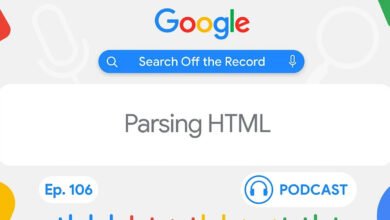Google: Sitemap Uploads Don’t Ensure Instant Crawling

▼ Summary
– Submitting the main sitemap index file (sitemap.xml) to Google Search Console is sufficient, and individual granular sitemaps do not need to be uploaded separately.
– Uploading sitemaps does not guarantee that all URLs will be crawled immediately, and there is no specific timeframe for Googlebot to recrawl them.
– The URL Inspection tool can be used to request crawling for individual pages, but it does not support bulk URL submissions.
– SEOs may choose to upload all sitemaps containing changed URLs for added reassurance, despite it not being necessary.
– The discussion was prompted by a user’s concern about changing website page slugs and ensuring Google Search Console processes the updates.
Uploading a sitemap to Google Search Console does not guarantee that your pages will be crawled or indexed immediately, according to a recent clarification from Google’s John Mueller. While sitemaps remain a valuable tool for informing search engines about your site’s structure, they should not be viewed as a fast-track solution for ensuring that new or updated content is discovered right away.
A user on the r/TechSEO subreddit recently asked whether it was necessary to submit individual sitemap files, such as page-sitemap.xml or sitemap-misc.xml, in addition to the main sitemap index file. The question arose after the user made significant changes to their website’s URL slugs and wanted to ensure a smooth transition in Google’s index.
Mueller responded by confirming that submitting the primary sitemap.xml file is sufficient, as it contains references to all other sitemaps. There’s no need to manually submit each subsidiary sitemap. More importantly, he emphasized that sitemap submission does not come with any kind of crawl guarantee or timeline. Googlebot will process the sitemap according to its own internal priorities and scheduling.
He further recommended using the URL Inspection tool in Google Search Console for more direct control over individual pages. This tool allows webmasters to request indexing for specific URLs, though it lacks a bulk submission feature. For sites with many updated pages, this can be time-consuming, but it offers a more targeted approach than relying solely on sitemaps.
So, is there any benefit to uploading all sitemap files individually? While Mueller asserts that it’s unnecessary, many SEO professionals prefer to submit all relevant sitemaps as an extra precaution. This practice can provide peace of mind, especially after significant structural changes, even though it doesn’t change how Google prioritizes crawling.
Ultimately, sitemaps are one part of a broader technical SEO strategy. They help search engines understand your site, but they don’t override the complex algorithms that determine crawl frequency and priority. For urgent indexing needs, the URL Inspection tool remains the most reliable, if somewhat limited, option.
(Source: Search Engine Journal)





